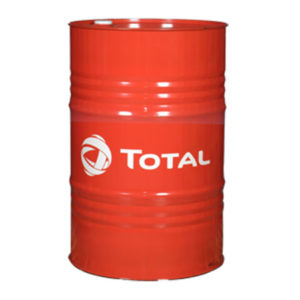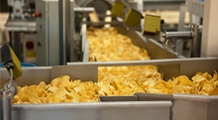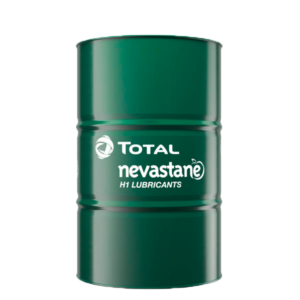The Right Lubricant for the Right Application
Choosing the right lubricant can be an extremely complicated process in general. With a wide array of products, grades and brands it can be very confusing. Another factor that can add to the confusion is what added requirements are needed other than lubrication. Two types of lubricants come to mind when discussing this topic: food-grade and biodegradable. For example, customers regularly ask for a food-grade product when a biodegradable is required and vice-versa, so it is crucial to understand what function, other than lubrication the product is being used for. This post will look at the important traits of each respective lubricant and ensure you have the basic knowledge to make an educated choice with these 2 extremely important oils.
Food Grade Lubricants
Companies that operate or produce products in sectors such as food, drink or medication, health and safety of their customers is paramount and hygiene standards must be met. These industries are bound by a number of regulations. Food grade lubricants must still perform the basic functions of a lubricant (protection against friction, wear and tear etc) but in the instance where contact with food or medication may occur, consumers must be protected. The National Sanitation Foundation (NSF) set up a number of categories that a food-grade lubricant fall into. We will discuss these below.
NSF H1 lubricants
These are lubricants created for incidental food contact and used where contact may potentially occur. This contact is limited to a trace amount with no more than 0.0001% allowed or the product will be considered unsafe for use. H1 lubricants can only contain certain types of base stocks, additives and thickeners that are approved by the FDA.
NSF H2 lubricants
H2 lubricants are primarily used in machinery found in food processing facilities, but there must absolutely be no possibility of contact with food. Although most substances used to make lubricants are accepted in H2 formulations, there are restrictions due to the risks in toxicology and other considerations regarding production and implementation. H2 lubricants cannot contain properties including carcinogens, mutagens, teratogens, mineral acids or heavy metals.
NSF H3 lubricants
H3 lubricants are food-grade lubricants that are normally edible oils, used to prevent rust on hooks, trolleys or similar equipment. A key difference with these food grade lubricants and others is that these lubricants may only contain edible oils that satisfy the following FDA approvals:
- FDA 21 CFR 172.860 (these include corn, soybean or cottonseed oils)
- Mineral oils that meet FDA 21 CFR 172.878
- Oils that are generally recognised as safe under either FDA 21 CFR 182 or FDA 21 CFR 184.
Biodegradable Lubricants
Biodegradable lubricants may sound like food-grade lubricants, but they have been developed for a very different use. The 21st century has seen a huge onus on environmental accountability and companies are increasingly aware of their responsibilities. This has become so prominent that terms such as eco-friendly, non-toxic and biodegradable are now the norm. Biodegradable lubricants are specifically designed for industries where an accidental release could result in contamination of the environment… particularly where there is potential exposure to water. They have been specifically formulated to breakdown and degrade when exposed to the environment to prevent build-up and damage to natural resources.
Biodegradable lubricants can be produced from vegetable oils, synthetic esters, synthetic hydrocarbons, or white oils. Biodegradable lubricants fall into 2 categories:
- Inherently biodegradable
- Readily Biodegradable
Readily biodegradable lubricants have the natural ability to degrade (decompose due to microbial activity) by 60-100% within 28 days. These are made from either vegetable oils or synthetic esters.
Inherently biodegradable means that the lubricant has the tendency to degrade over longer periods of time. They are expected to degrade somewhere between 20% – 60% within 28 days. These products are normally made from either Polyalphaolefins (PAO) or highly processed mineral oils known as “white oils.”
Which Lubricant is Best?
This question is subjective to the task that you are performing. More importantly, identifying the exact role of lubricant should be your focus. It is also extremely important to remember that food-grade lubricants are not necessarily biodegradable and biodegradable lubricants are not necessarily fit for food-grade applications.
The Nevastane Range
Available from Finol today, Total has developed the Nevastane range, a group of NSF H1 registered products for use in industries where incidental contact with food can occur. These products allow you to avoid the consequences created in the event that the lubricants come into contact with food accidentally. You can view our full range of Nevastane products by clicking here and to learn more about our full range of products you can contact a member of our experienced team by clicking here.
Biohydran TMP
Biohydran TMP is a biodegradable synthetic hydraulic fluid containing strong lubricating properties. This lubricant was designed for the stresses of demanding hydraulic systems requiring hydraulic fluids with reinforced anti-wear properties. It is highly recommended for use when incidental spillage in environmentally sensitive areas can occur, e.g.: forestry works, navigation, offshore, water catchment areas, ski resorts, hydroelectric stations etc.
Advantages
- Produced with renewable raw materials, Biohydran TMP is contributing to CO2-emission reduction.
- High natural viscosity index gives Biohydran TMP a wide temperature operating window (-20°C to 80°C).
- The very high shear stability of Biohydran TMP will ensure the hydraulic equipment is kept at optimum efficiency during the fluid service life.
- The good lubricating properties, as well as the very good wear and corrosion protection, will extend the life of the hydraulic system’s moving components
No matter your requirement, whether it be food grade or biodegradable, Finol oils has the range to suit your needs. To find out more about Nevastane or Biohydran, contact the Finol today at 01-455 5484 or go to www.finol.ie/contact-us to send your enquiry directly to our dedicated technical team.





